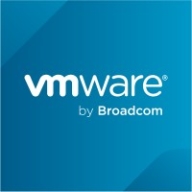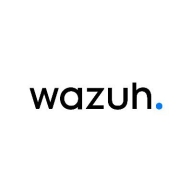

VMware Aria Operations for Logs and Wazuh compete in the log management and security fields. Wazuh appears to have an advantage with its broad platform support, including strong SIEM capabilities, while VMware is stronger with seamless integrations within its ecosystem.
Features: VMware Aria Operations for Logs is designed for VMware environments, offering log filtering and analysis with automation and dashboard customization. Wazuh supports diverse environments and excels in SIEM capabilities and compliance, integrating well with Kubernetes and AWS.
Room for Improvement: VMware Aria Operations for Logs needs to improve log retention complexity, documentation clarity, and third-party integration. Wazuh's interface can be less user-friendly, with challenges in scalability and real-time Unix monitoring.
Ease of Deployment and Customer Service: Both support on-premises and hybrid cloud deployments. VMware benefits from vendor support, though response delays occur. Wazuh relies on community support, offering cost benefits but lacking direct issue resolution.
Pricing and ROI: VMware Aria Operations for Logs is costly for smaller businesses but integrates seamlessly within VMware ecosystems, enhancing ROI. Wazuh, being open-source, minimizes licensing costs though total ownership costs may rise with support service investments.
I have seen value in security cost savings with Wazuh, as using proprietary EDR versions could save us substantial money.
While support staff is knowledgeable, getting access to specialists can be challenging when dealing with the limits of a product.
Customer service and support have declined.
I did not need technical support because I am a professional with VMware.
They responded quickly, which was crucial as I was on a time constraint.
We use the open-source version of Wazuh, which does not provide paid support.
The documentation is good and provides clear instructions, though it's targeted at those with technical backgrounds.
Since payment is based on hardware, scalability impacts are managed more effectively than with other tools paid by data volume.
It's relatively easy to find individuals with the skills to work with VMware because it is a widely spread tool.
It can accommodate thousands of endpoints on one instance, and multiple instances can run for different clients.
Currently, I don't see any limitations in terms of scalability as Wazuh can still connect many endpoints.
Scalability depends on the configuration and the infrastructure resources like compute and memory we allocate.
Managing a lot of data involves reliance on hardware and network performance, which are external factors that can affect stability.
It has been very stable, and every time I needed it, it was available and working.
VMware as a whole provides very stable tools.
The stability of Wazuh is strong, with no issues stemming from the solution itself.
The stability of Wazuh is largely dependent on maintenance.
The indexer frequently times out, requiring system restarts.
It would be beneficial to have a roadmap for these dashboards to ensure consistent functionality.
There is also dissatisfaction with Broadcom's broader attitude, which is prompting me to search for alternatives.
VMware Aria Operations for Logs is not a cost-effective tool.
Machine learning is needed along with understanding user behavior and behavioral patterns.
The integration modules are insufficiently developed, necessitating the creation of custom integration solutions using tools like Logstash and PubSub.
I think Wazuh should improve by introducing AI functionalities, as it would be beneficial to see AI incorporated in the threat hunting and detection functionalities.
Splunk, often paid by the terabytes, becomes expensive quickly if not managed carefully.
The price has risen significantly, and for smaller customers, the cost can be up to ten times more than before.
VMware comes with a lot of packages, however, it remains too expensive.
Wazuh is completely free of charge.
I would definitely recommend Wazuh, especially considering Fortinet's licensing model which is confusing and overpriced in my opinion.
Totaling around two lakh Indian rupees per month.
This tool also provides greater insight when integrated with VMware infrastructure, making it more precise than other tools.
The most valuable features are log centralization and long-term retention for logs.
A valuable feature of VMware Aria Operations for Logs is its ability to allow personalization of dashboards and requests.
Wazuh is a SIEM tool that is highly customizable and versatile.
The system allows us to monitor endpoints effectively and collect security data that can be utilized across other platforms such as SOAR.
With this open source tool, organizations can establish their own customized setup.
| Product | Market Share (%) |
|---|---|
| Wazuh | 12.2% |
| VMware Aria Operations for Logs | 1.4% |
| Other | 86.4% |


| Company Size | Count |
|---|---|
| Small Business | 7 |
| Midsize Enterprise | 9 |
| Large Enterprise | 12 |
| Company Size | Count |
|---|---|
| Small Business | 26 |
| Midsize Enterprise | 15 |
| Large Enterprise | 8 |
Manage data at scale with centralized log management, deep operational visibility and intelligent analytics for troubleshooting and auditing across private, hybrid and multi-cloud environments.
Wazuh offers comprehensive security features like MITRE ATT&CK correlation, log monitoring, and cloud-native infrastructure. It ensures compliance and provides intrusion detection with high scalability and open-source flexibility, ideal for businesses seeking robust SIEM capabilities.
Wazuh stands out in security information and event management by providing efficient log aggregation, vulnerability scanning, and event correlation against MITRE ATT&CK. Its capability to integrate seamlessly with environments, manage compliance, and monitor files makes it suitable for cloud-native infrastructures and financial sectors. Despite its technical support needing enhancement and opportunities for improving AI integration and threat intelligence, its open-source nature and cost-effectiveness make it appealing. Users can leverage custom dashboards powered by Elasticsearch for precise data analysis, even though there is a desire for a more user-friendly interface and better enterprise solution integration. Deployment may be complex, but its features contribute significantly to fortified security postures.
What are the essential features of Wazuh?Industries like finance and cloud infrastructure heavily utilize Wazuh for its security strengths. By monitoring endpoints and ensuring compliance with frameworks, companies can improve security posture and swiftly detect anomalies. The platform's focus on event correlation and alerts for security incidents is particularly beneficial.
We monitor all Log Management reviews to prevent fraudulent reviews and keep review quality high. We do not post reviews by company employees or direct competitors. We validate each review for authenticity via cross-reference with LinkedIn, and personal follow-up with the reviewer when necessary.